The Myers-Briggs® Personality Types of the Silo Characters
Let’s be honest. If you woke up one morning and found yourself living 144 stories underground, breathing recycled air, eating sad little apples grown under fluorescent lights, and being told “The Outside Is Death™,” you’d probably have some questions. Or maybe you’d just fix the generator and keep your head down. Depends on your type.
In The Silo, you’ll find every flavor of personality—rebels, rule-followers, deep feelers, secret schemers. I loved the character arcs, the complexity, and the suspense of this series and I had so much fun trying to psychologically analyze the characters. Let’s take a look at their personality types!

Keep in mind, I can’t actually sit across from Juliette Nichols and give her a type clarification session. Yes, I’m an MBTI® practitioner, but there is a very specific type of consultation I would normally conduct to make sure of someone’s type. I can’t do that with fictional characters. These are my best guesses, but as new seasons come out new information might lead me to update this if the characters are developed in a way that would align with a different personality type.
Not sure what your personality type is? Take our personality questionnaire here. Or you can take the official MBTI® here.
Holston Becker – ISTJ
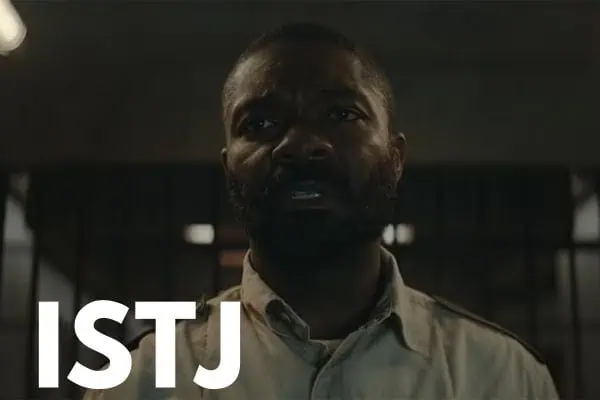
Holston is the kind of guy who doesn’t just read the rulebook—he is the rulebook. If the Pact had a human form, it would wear Holston’s sheriff badge and polite smile.
This man is a textbook ISTJ: dutiful, principled, and slow to question authority… until the very structure he’s devoted his life to protecting kills the woman he loves.
For the first episode, Holston feels like our main character. He’s composed, dependable, and respected. When Allison starts to unravel, he doesn’t dismiss her—he just doesn’t know how to handle the world she’s beginning to see. He plays by the rules and is skeptical of anything that challenges them. He’s slow to jump to conclusions until the evidence starts stacking up too high and he allows himself to not only trust the facts, but his heart.
But here’s the heartbreak: When he finally believes Allison—really believes her—it’s too late. So what does he do? He walks out into the toxic unknown, not because he has proof, but because he has faith.
That’s the ISTJ arc right there: From “just following the rules” to “dying with integrity because the rules are broken.”
Allison Becker – ENTP
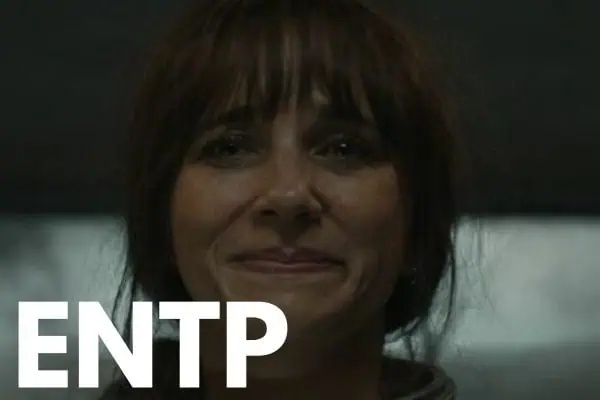
You know that moment when someone starts questioning the system, and then it snowballs into “everything I’ve ever known is a lie”? Yeah. That’s an ENTP nightmare—and a dream.
Allison is curious, clever, warm, and utterly relentless once her mental gears start turning. She uncovers that the birth control implant she was told was removed… wasn’t. She realizes women are being controlled without consent. And then she realizes something even darker: that the “toxic” outside world may not be toxic at all.
She demands answers. And when no one gives them, she decides to burn the whole illusion down by going outside herself.
ENTPs are often the conspiracy theorists who turn out to be right, and Allison’s descent into madness is actually a spiral into clarity. But clarity without support is a kind of madness all its own.
She dies trying to expose the truth. Or maybe she dies trying to escape the truth. Either way, she’s the fire that sparks Holston’s awakening—and the reason Juliette gets pulled into the fight.
Ruth Jahns – ENFJ
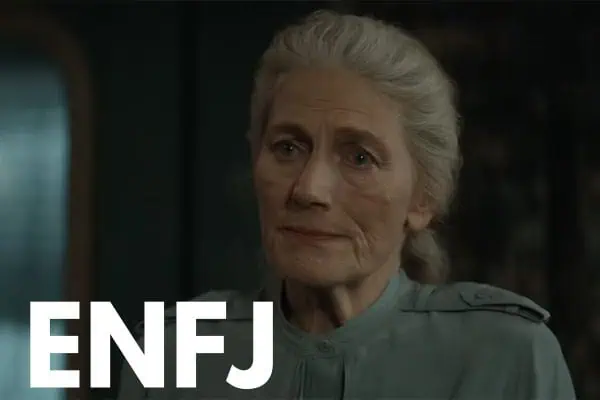
Ruth is that rare leader who seems like she could actually run a society and make you laugh while doing it. ENFJ to the core—compassionate, savvy, emotionally intelligent, and exactly the kind of person totalitarian regimes hate.
She believes in people. Not just the idea of them, but the messy, imperfect, trying-their-best version of them. That’s why she believes in Holston. Why she trusts Juliette. Why she listens to Sam even when he’s growling into his whiskey.
Ruth doesn’t wield power like a weapon—she uses it like a balm. She tries to build bridges where others would burn them. She mentors. She consoles. She jokes. She leads. And then, when she becomes inconvenient to the real powers behind the curtain, she’s eliminated.
Sam Marnes – ESFJ
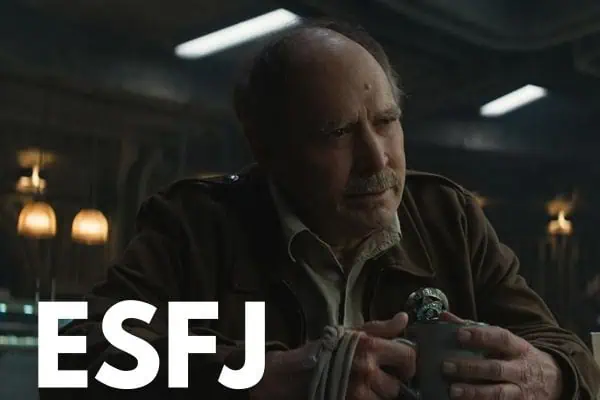
Sam Marnes is an ESFJ who’s seen too much and feels every bit of it.
He’s Holston’s right-hand man, and when Holston dies, it nearly breaks him. Then Ruth dies, and that does break him. He drinks. He yells. He punches people who probably didn’t deserve it—but none of it’s random. He’s grieving. And ESFJs grieve hard when their emotional foundation collapses.
He’s not a flashy character, but he’s a deeply human one. He doesn’t want power, just peace. He wants to protect the people he loves, and when they’re taken from him, he goes full “dad at the edge of a breakdown” mode. Still, he shows up. He backs Juliette. He does what needs doing.
What makes him lovable is that behind all the gruffness is this aching tenderness. He wants to retire and open a little shop. He wants a normal life. But the Silo doesn’t give “normal” to men like Sam.
He’s the guy who stays when everyone else walks out. And in a place built on secrets and betrayals, that loyalty is rare and precious.
Martha Walker – INTP

Walker is the kind of person you underestimate—until you realize she’s quietly ten steps ahead and just didn’t feel like telling you.
She’s brilliant. Dry. Hilarious in that “Oh god, she just roasted Bernard and didn’t even blink” kind of way. She lives in her head, in her workshop, in her tangle of wires and soldered circuits. The outside world? No thank you. Let her tinker in peace with a teacup and her gadgets.
But here’s the thing: like most INTPs, she’s not cold. She just doesn’t broadcast emotion the way others do. When Juliette comes crashing into her world, Walker shows up—not with fanfare, but with fierce protectiveness, biting wit, and quiet acts of sacrifice.
INTPs are known for needing evidence, and Walker’s a walking catalog of it. She doesn’t believe the lies of the Silo because they don’t add up. And when she realizes Juliette is in danger, she finds the courage to do something she hasn’t done in twenty-five years: leave her home.
That moment? When she goes out into the corridors to get heat tape to help Juliette survive the Cleaning? It’s small. And massive. INTPs don’t do grand gestures. But when they love you, they’ll cross galaxies of fear to get you a roll of tape.
Lukas Kyle – INTP

Lukas is another INTP, but where Walker is sardonic and steady, Lukas is dreamy and wide-eyed, even if he tries to hide it. He works in IT, but he spends his nights gazing at the “lights in the sky,” not even knowing they’re called stars.
INTPs often feel like aliens in their own world. Lukas would relate. He’s a man obsessed with patterns and beauty in a society that crushes both. His curiosity is dangerous—not because it’s destructive, but because it opens doors that are meant to stay sealed.
He befriends Juliette because his search for meaning aligns with hers. And when that alliance lands him in the mines? He doesn’t rage. He doesn’t even fight. He adapts. He watches. He thinks.
Season 2 sees Bernard recognizing Lukas’ brilliance and dragging him into IT’s inner circle. But Lukas still believes in truth. He’s not arrogant enough to think he knows everything, but he’s brave enough to ask the questions no one else will.
The world breaks thinkers like Lukas. But it also needs them to survive.
Camille Sims – INTJ
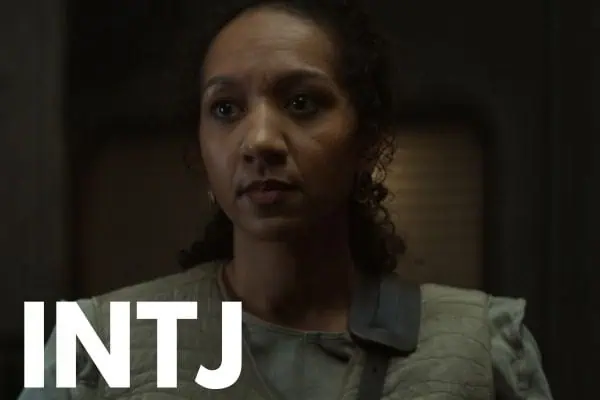
Camille Sims doesn’t waste words. Or moves. Or energy. She’s the kind of INTJ who sees the entire chessboard, nods once, and lets everyone else think the idea was theirs.
On the surface, she’s the supportive wife. But dig deeper, and you see the schemer behind the strategist. She’s not just backing her husband—she’s positioning him. Encouraging him. Testing his resolve. And when Bernard refuses to make Sims his shadow? Camille pivots. She helps Mechanical escape, undermines Bernard’s plans, and reasserts her influence—all while staying technically loyal.
INTJs don’t waste loyalty on those who don’t earn it. Bernard lost her respect. Sims might lose her trust. Camille is constantly calculating who’s worth her effort, and her efforts are always bigger than they appear.
What makes her fascinating isn’t just her intelligence—it’s her restraint. She knows exactly what’s happening but doesn’t broadcast it. She’s dangerous because she doesn’t need to be seen. Her fingerprints are on every major turning point, but she’s never in the spotlight.
Her alignment is ambiguous, but her intentions are razor-sharp: secure power, protect her son, and outwit a system designed to crush women like her. And she’s doing it one move at a time.
Solo (Jimmy) – INFP
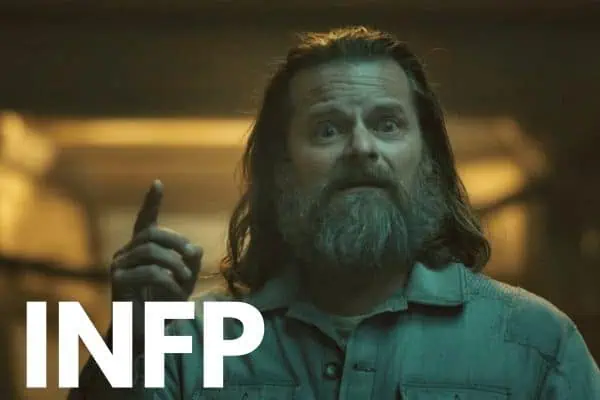
Solo is the Silo’s lost child. Literally and emotionally.
Trapped in the ruins of Silo 17 since the age of twelve, his world stopped when everyone else’s ended. And what’s left is a broken, beautiful INFP—fragile and fierce, hiding under piles of relics and layers of paranoia.
When we first meet Solo, he’s threatening to kill Juliette through a door. And yet, even in that threat, there’s sadness. A desperate need to protect himself, to be understood, to not be hurt again. Solo is both unpredictable and entirely understandable once you know what he’s endured. He saw his father executed. He survived the apocalypse of his community. He renamed himself out of shame.
His quote about Jimmy being a coward? That’s the internal monologue of every INFP who’s ever let their ideals slip through their fingers and then judged themselves mercilessly for it.
Judge Mary Meadows – INTP
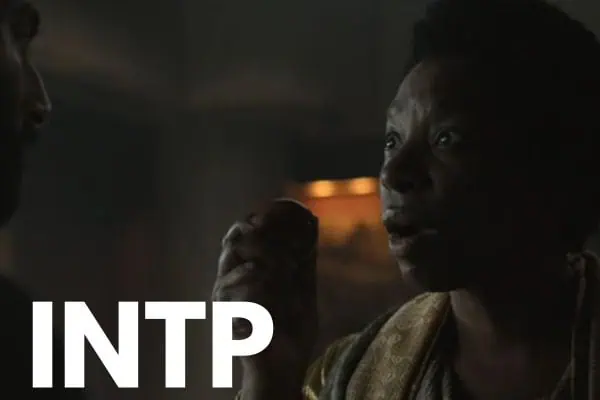
Judge Meadows begins as the Wizard of Oz: big voice, closed doors, smoke and fear. But pull back the curtain and what do you find? A tired, brilliant woman drowning in regret and brandy.
INTPs are the system-mappers of the MBTI® world. And Meadows mapped the Silo too well. She saw the truth—really saw it—and it broke her. Instead of trying to change the system, she found a way to survive it. Power, in her case, became armor. Or maybe a prison.
Meadows isn’t heartless. She’s just exhausted. She understands the machinery of deception and uses it with precision—until the cost becomes too high. Her relationship with Bernard is tragic: mutual respect tangled with manipulation. They’re the last two in a dying game of chess, and she knows she’s the piece being sacrificed.
Dr. Pete Nichols – ISFJ
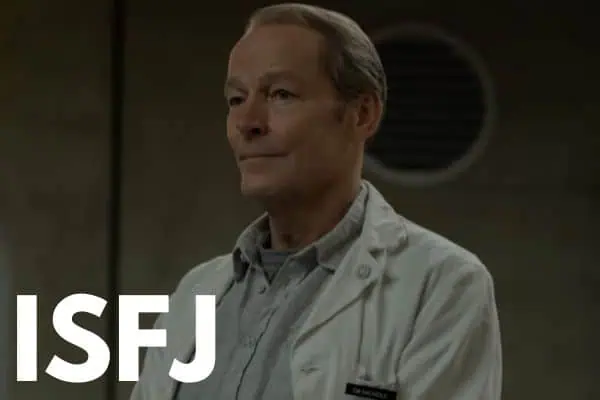
Pete Nichols is the guy who wants to be good, even when the rules ask him not to be.
He’s an ISFJ down to the soul: loyal, gentle, dutiful. And for a long time, those traits were weaponized by the Silo’s authority. He followed orders. Gave women fake hope. Played his role as a quiet cog in the machine, even while it broke his wife, and then his daughter.
But something shifts when Juliette comes back into his life. At first, it’s awkward—he doesn’t know how to reach her. He’s filled with guilt, and he’s so reserved it almost reads as cold. But ISFJs don’t express themselves loudly. They show up. They remember. They do.
So when he’s told not to remove a birth control implant and does it anyway? That’s huge. When he helps Juliette reach Gloria, when he leaves his post to work in Mechanical—those are his rebellions. Quiet, purposeful, and absolutely life-changing for the people they affect.
ISFJs don’t often break the rules. But when they do, it’s because their loyalty has shifted from institutions to individuals. From doctrine to dignity.
Bernard Holland – ISTJ
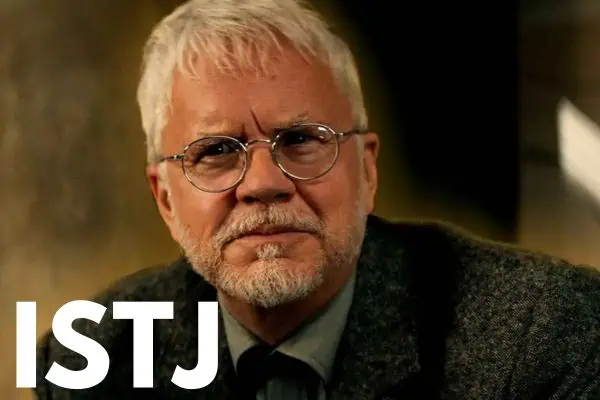
Bernard is like if Big Brother had glasses, a gravelly voice, and occasional existential dread.
He’s an ISTJ—but not the steady, warm kind. He’s the strategist on the verge of a breakdown kind. The one who has a plan for everything, a justification for anything, and a deep-down panic that if he lets go of the wheel for one second, the entire world will burn.
Because Bernard knows things. Horrible things. World-ending things. And in true ISTJ fashion, he’s taken all of it and turned it into a job description. He builds the rules, breaks them, hides them, and duct-tapes them back together if it means the Silo survives.
He’s not cruel for cruelty’s sake. He’s not even power-hungry in the traditional sense. He’s just convinced that he’s the only one who can do what needs to be done. And in some ways… he might be right. That’s what makes him so terrifying.
ISTJs usually get a reputation for being the most loyal of types. But Bernard? He’s only loyal to the mission.
And that makes him dangerous.
Robert Sims – ESTJ

Sims is the kind of guy you don’t want to meet in a dark corridor unless you’ve got your story straight. He’s blunt, commanding, and moves like a man who doesn’t apologize—because if he did, he’d never stop.
As an ESTJ, Sims is action-first. Rules aren’t theories—they’re anchors. And anyone who threatens the Silo’s stability threatens his entire worldview.
What’s fascinating about Sims is that he’s not just a hired thug. He believes in order. In the chain of command. In his role as the system’s sword. But he also deeply loves his family. He’s a dad. A husband. And those roles are real to him in a way that his job sometimes isn’t.
That duality creates a quiet tragedy: Sims is willing to kill for the system… but not always willing to question who’s running it. Bernard uses that. Camille pokes at it. And the more he realizes that his loyalty might be misplaced, the more his grip tightens.
Paul Billings – ISFJ
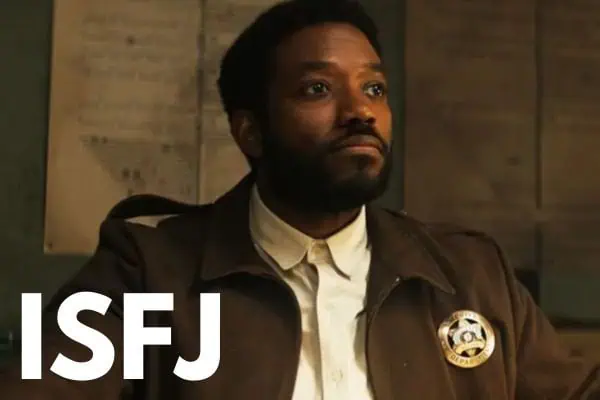
Paul Billings starts out looking like a puppet. He knows the Pact by heart. He’s buttoned-up, respectful, polite—everything you’d want in a figurehead. Which is exactly what makes him dangerous to the wrong people.
Because ISFJs, while soft on the outside, are steel underneath.
Billings follows rules not because he’s spineless—but because he believes in them. He believes they exist to protect people. To maintain peace. And when he realizes that those rules are being twisted into tools of control? That’s when the gloves come off.
The transformation is subtle but seismic. He stops hiding his syndrome. He stops covering for Bernard. He starts investigating on his own terms. And in one of the most satisfying moments of season 2, Bernard realizes too late that Billings has switched sides.
The tremors disappear. Not because the disease is gone, but because the lie is.
ISFJs don’t shout their rebellions from the rooftops. They plant them in quiet acts of integrity and watch them bloom.
Billings is no longer just a deputy. He’s a symbol that you can uphold your values and fight the system—and that kindness doesn’t mean weakness.
Juliette Nichols – ISTP

Juliette is the quintessential ISTP: hands-on, emotionally guarded, fix-it-before-I-feel-it. Her love language is “I broke open a pipe to save your life.” Her grief language is “I threw a wrench at the wall and then fixed the thing I broke.” She’s not here for warm fuzzies. She’s here to keep the generator running—and the Silo, by extension—alive.
Juliette doesn’t ask for power. She doesn’t want to be anyone’s hero. But when Holston names her Sheriff, she doesn’t walk away. She glares at authority, drinks something vaguely flammable, and takes the job anyway. And then she actually tries to do it well. Because that’s the twist: under all the steel and sarcasm, she cares.
Deeply.
I felt especially bad for Juliette when she was stuck with Solo in Season 2. ISTPs and INFPs tend to understand each other poorly. She’s trying to solve the immediate problem, look at the facts, and get into her head to troubleshoot in a make-or-break situation. Solo is telling her “irrelevant” stories and asking for connection. He’s dramatic, naive, and dreamy. She’s got a job to do and he’s getting in the way….maybe. Eventually the two learn to work together and then they become a powerhouse of differing strengths. But it was a stressful season to be sure!
Shirley – ESFP
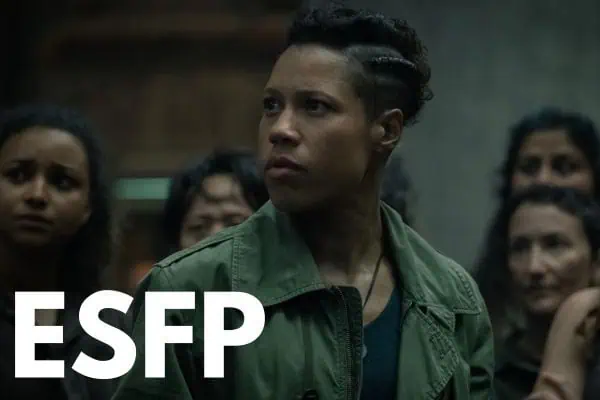
Shirley is that friend who will fight a fascist for you—and then bring you a sandwich.
As an ESFP, she’s passionate, loyal, and loud in the best way. She feels things big and fast, and she acts before overthinking ruins the moment. She’s the tether to real life, the one who reminds Juliette what she’s fighting for.
In season 2, when the world starts crumbling and everything gets ten times more dangerous, Shirley leans in. She doesn’t sit back. She moves. Even when it’s messy. Even when it’s reckless. Because for Shirley, loyalty isn’t a feeling—it’s a decision. And she decides, over and over again, to stand with her people.
She’s not a strategist. She’s not a planner. She’s a burst of emotion and muscle and guts. But that doesn’t make her foolish—it makes her real. And in a place where so many people choose silence, Shirley shouts.
George Wilkins – ENTP
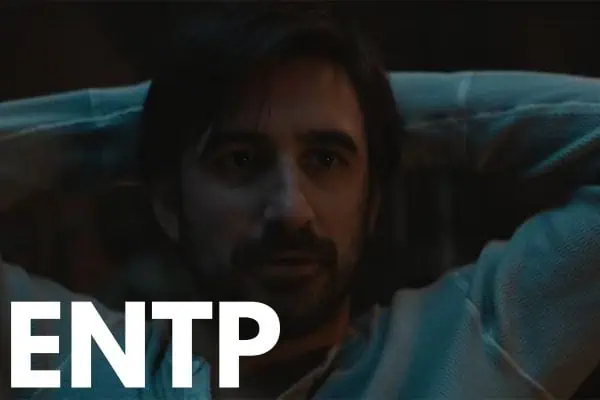
George is the ENTP who got too close to the edge of the map—and smiled anyway.
He’s curious, clever, and always on the verge of saying something either genius or deeply inappropriate. He runs a computer repair shop, but what he really does is dig for forbidden knowledge. He’s the kind of guy who sees a sealed door and immediately starts looking for a crowbar and a reason.
That’s the ENTP soul: “Why shouldn’t we know? Why wouldn’t we question? What are they so afraid of?”
George dies early, but his presence lingers like a puzzle that hasn’t been solved. Juliette wears his watch. People speak his name like a ghost. And when the truth finally cracks open, it’s because George planted the seeds.
He wasn’t perfect. There are hints he used people—maybe even Juliette. But ENTPs don’t always realize when their cause becomes more important than the people around them. Still, he meant something to her. And that meaning fuels Juliette’s fire.
Knox – ESTJ

Knox is the kind of man you want running things when the world goes sideways. He’s a textbook ESTJ—direct, pragmatic, organized—but with something a lot of people forget ESTJs can have in spades: loyalty.
He runs Mechanical like a ship’s engine room—tight, hot, sweaty, and held together by discipline, loyalty, and the occasional shouted reminder not to die in the turbines. And his people trust him. Not because he’s warm and fuzzy (he’s not), but because he’s fair. Consistent. Competent. He’s not some clipboard-waving boss barking orders from above. He’s in it—covered in grease and strategy and responsibility he never asked for but refuses to shirk.
When Juliette is being hunted and everything is falling apart, Knox doesn’t go full chaos. He tries to reason with the authorities. He negotiates. He holds the line. And only when it becomes clear that no one in power is playing fair does he let that inner ESTJ war general take over.
Knox doesn’t want a fight. But when he chooses one, it’s because he’s already calculated the cost—and decided it’s worth it.
And the best part? He still does it with integrity. When he discovers someone in Mechanical was coerced into betraying them, he doesn’t scream or exile her. He gives her a purpose. A second chance. Because Knox understands that leadership isn’t just about power—it’s about people.
He’s the kind of ESTJ who sees the big picture and the people in it. And that’s rare.
What Do You Think?
Do you agree with my choices for the Silo characters or do you have a different perspective? Let me know in the comments!














Susan, I read your posts all the time and this is definitely a favorite!!! Gorgeously written, insightful, and most importantly – *SPOT ON*. Love it. Thank you.